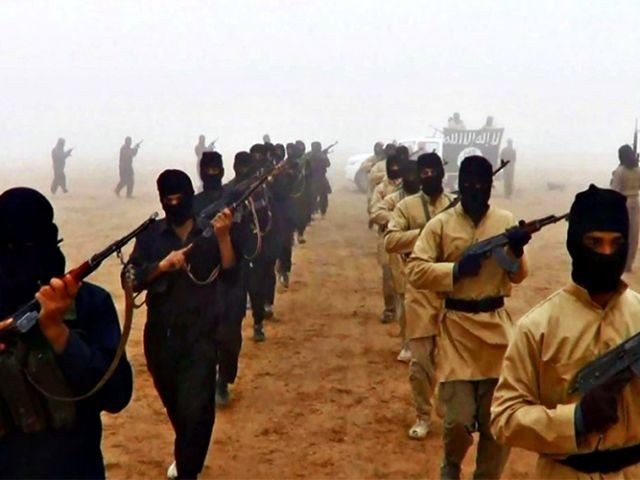Islamic State terrorists consider the mainstream media to be “more important than military jihad” with a “far-reaching” power that exceeds even the “most powerful bombs,” reports the London-based International Center for the Study of Radicalization and Political Violence (ICSR).
The Islamic State jihadists value the mainstream media because it helps them to produce and disseminate propaganda to a vast audience.
“Weeks after its capture of Mosul in 2014, the Islamic State set about transforming its strategic trajectory. Through an avalanche of media products, it worked to aggressively insert itself into the global public discourse and, in turn, popularize its brand, polarize adversary populations and drive rivals into the ideological side-lines,” notes ICSR.
“The Islamic State champions the offensive use of information to ‘infuriate the unbelievers.’ With this in mind, media organizations must resist the production of nuance-less ‘clickbait’ articles derived from the Islamic State’s propaganda,” it adds. “If they do not, they run the risk of becoming unwitting instruments of its media strategists.”
The London-based think tank goes on to point out that ISIS jihadists became media pioneers when they established a standard for other Islamic terrorists to follow if their goal is to spread their message to all corners of the world.
“This research paper presents new, empirical insight into this troubling [ISIS messaging] phenomenon, which has set a benchmark for insurgent strategic communications” all over the world,” reports ICSR.
It adds:
For the Islamic State, the mainstream media is considered to be an effective weapon that, if leveraged correctly, has “far-reaching” power that can exceed that of the most powerful bombs.
The Islamic State sustainably incites activism, whether from… operatives or online volunteers, by venerating information warfare in a manner unparalleled by any other… jihadist actor. As the document attests, in its eyes, propaganda production and dissemination is at times considered to be even more important than military jihad.
This month, retired Gen. David Petraeus told U.S. lawmakers that recapturing the territory ISIS has conquered in Iraq and Syria would prove to be much easier than to defeat the group’s depraved ideological caliphate.
Gen. Petraeus told the House Armed Services Committee on the first day of this month:
The greatest weakness of Islamic extremism is also its greatest strength—which is its protean ability to exist and indeed thrive without inhabiting a conventional nation-state. What it lacks in traditional power terms, it compensates for in conviction, resilience, resourcefulness, and ferocity. And in its hydra-like qualities, it is unlike any adversary we have faced before.
[…]
We must also recognize that long-term success in this conflict requires that the ideology of Islamic extremism is itself discredited. And contending with the ideological caliphate in cyberspace will undoubtedly prove more challenging than taking away the rest of what is now a shrinking physical caliphate on the ground in Iraq and Syria.
ISIS is reportedly well aware of the power behind its jihadi ideology — particularly the messages and calls for action found in its propaganda videos and magazines now being spread across the world.
Some of their rivals, namely al-Qaeda and the Taliban, have condemned and distanced themselves from some of the barbaric acts committed or linked to ISIS, which reduces the competition for influence.
ISIS understands that by emphasizing their brutality, they will grab the attention of readers’ worldwide and therefore disseminate their propaganda to places where their arrivals can only dream to reach.

COMMENTS
Please let us know if you're having issues with commenting.